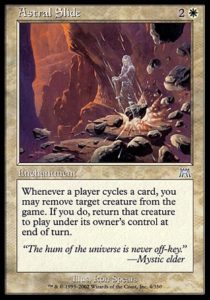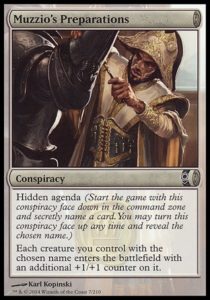As this article goes live, I’ll be landing in Indianapolis for Gen Con with the whole team from Kingdom Death: Monster. We’ve been preparing for this trip for months—assembling art, creating products for sale and showcasing, meticulously planning out the entire trip from plane tickets to the layout of our booths, and several handfuls of more tasks. For me and my team’s part, we’ve been hard at work making our demos the best we can and ourselves the best demoers we can be. Every year we do far more work than the year before, but it all pays off when we get to give it to our fans, both the long-devoted and brand-new. This year is particularly and personally sweet, as we’re showing off a monster I’ve devoted a huge amount of time and design to: the Black Knight.
One week after this article goes live, I’ll be home, freshly home from the airport and hopefully sleeping off the trip. When I awake, I will almost certainly be depressed—the fun and excitement will be over, the bill from the introversion bank will be long overdue, and the event I’d been anticipating for the past several months will be in the past.
There is a clear cycle: anticipation, reward, then release. Everyone has these moments in ways both large and small: a presentation at work, a short story to present to a writing group, a big exam, a movie premiere, a prerelease, an election, or trip to see an estranged friend. We all know what it’s like to see an important event in the distance. To witness it grow large as it approaches. To marvel in its shockingly abrupt presence. And finally, to be in its shadow, not quite yet able to see the next big thing on the horizon. Sometimes, the event’s passing brings relief—a reprieve after cowering before a deadline or basking in a wondrous experience. Sometimes, it brings sorrow—a moment is gone that can never be recaptured, or an opportunity proved not to be what you wanted.
I know myself. I tend to be overwhelmed after moments of great joy, triumph, or heavy socialization. Gen Con can go any number of ways, but it will certainly be a major event (and one full of people)—too much time has been devoted to it for it to not have a major impact. It brings me relief to know that at the conclusion of it, I’ll almost certainly have a period of sadness. That’s just how I work, how I bounce back from being exhilaration and overexertion. As I’ve gotten older, I’ve come to know myself better and to accept the less-than-fun feelings as important in and of themselves. Sometimes they’re important signals and alarms; and other times, they just happen, and that’s okay.
I wanted to talk about this for two reasons today. The first is maybe there’s out there reading this struggling with what I used to: “That was amazing, so why do I feel so low?” To them, I say, “This is just how some of our brains and emotions work. Accepting this can blunt the pain and make the supposedly bad feelings reveal the good within them.” Or, to put it another one, “Yes, I’m a very blue mage. But you can’t outthink an emotion—sometimes you have to just accept it for what it is. Red and green have some of the answers, too, and that’s a hard lesson for a blue mage to internalize.”
The second reason is that emotion is a vital part of my and all creative and entertainment industries. Ultimately, art and games are about making people feel something. Understanding my own emotions makes me recognize the value of those beyond amusement (as an improviser, it’s really hard to be anything but comedic—you can hear a single person laugh, but you can’t hear a single tear roll down everyone’s cheek in the audience). Emotional intelligence also engenders empathy, which helps one recognize not only the myriad ways people feel, emote, and respond to various stimuli, it helps the designer seek out and share new kinds of experiences.
Getting to know and accept myself has both made me a happier, more balanced person and a better designer. Sure, it doesn’t eliminate the sadness I’ll inevitably feel from time to time and after Gen Con, but it tempers and shapes the feelings. And sometimes, that’s more than good enough.
And, as always, thanks for reading.
—Zachary Barash
Zachary Barash is a New York City-based game designer. He works for Kingdom Death: Monster, has a Game Design MFA from the NYU Game Center, and does freelance game design. When the stars align, he streams Magic.
His favorite card of the month is Metamorphic Alteration. It’s a Clone that you can deploy to Polymorph your opponent’s creature or upgrade your own. It’s not a strong card in and of itself, but it can enable a whole host of shenanigans.



